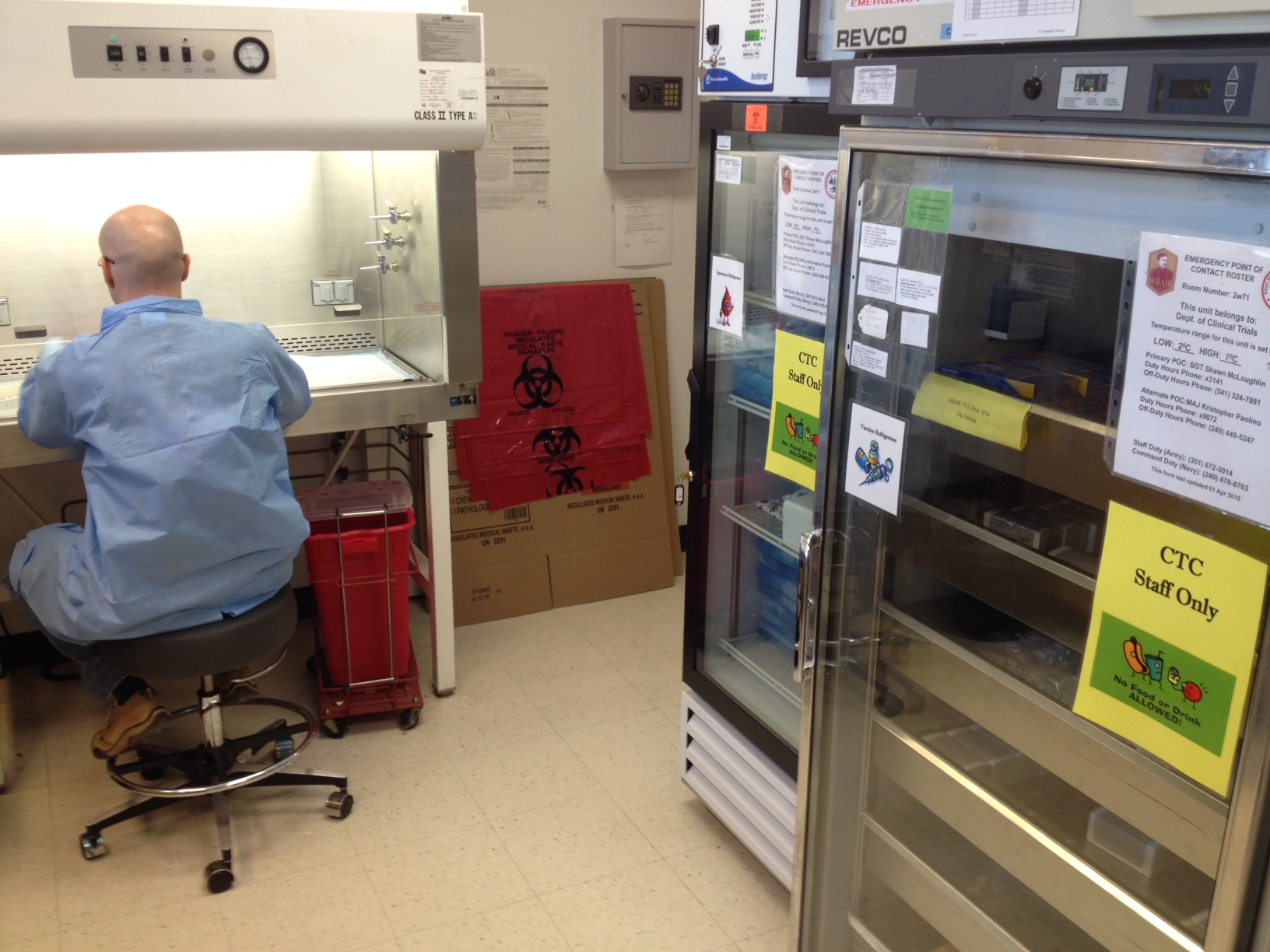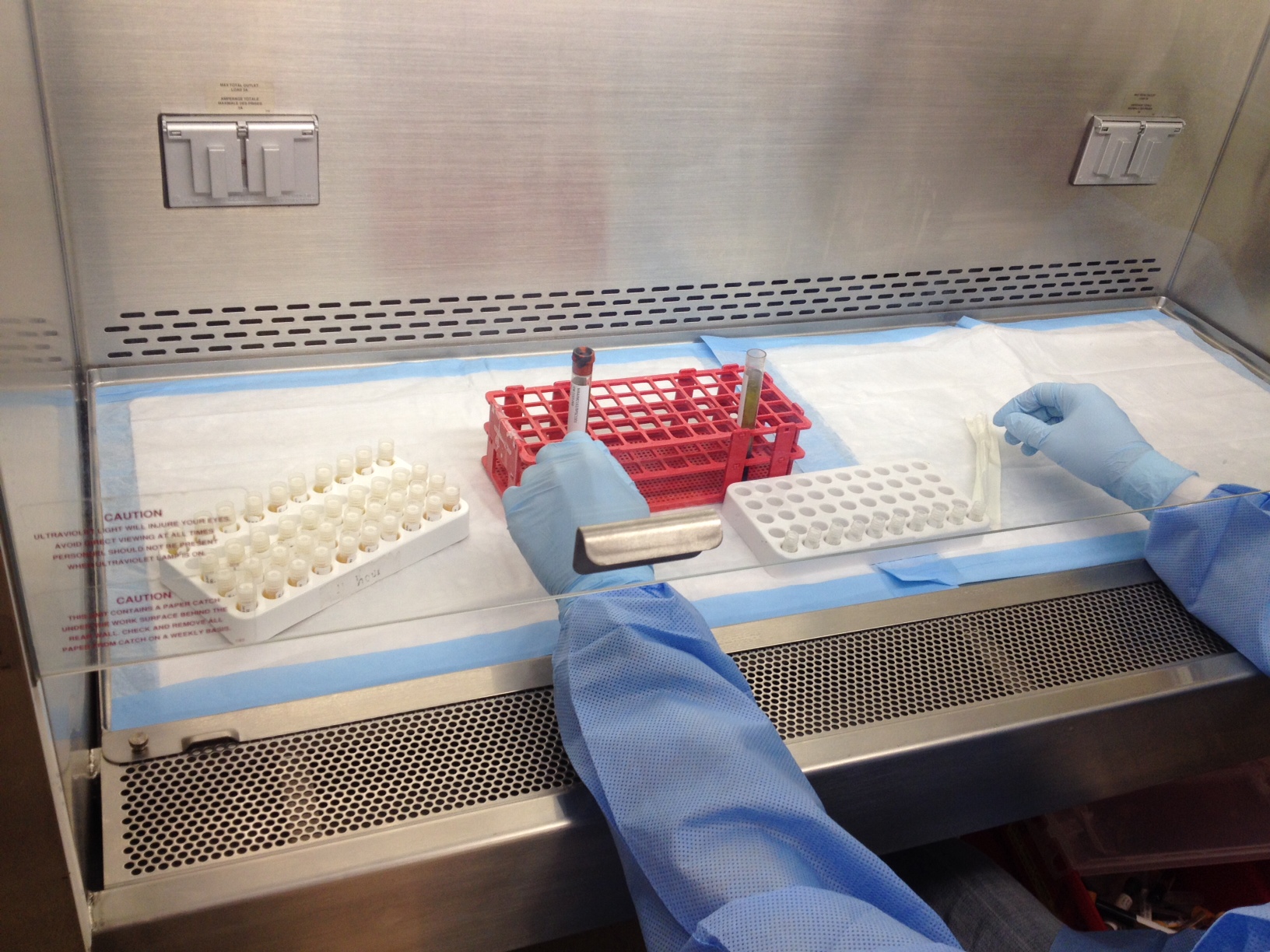





WASHINGTON — An experimental vaccine that was rushed into testing during the height of the Ebola outbreak appears to be safe for humans, according to new findings.
The vaccine has also “generated a robust immune response in the people who received the vaccine,” according to Col. Stephen Thomas, deputy commander of the Walter Reed Army Institute of Research in Silver Spring, where the first human testing of the vaccine began in October. Around the same time, the National Institute of Allergy and Infectious Diseases in Bethesda began an “independent but coordinated” study of the vaccine.
Their joint findings will be published in the New England Journal of Medicine Thursday.
The vaccine, known as VSV-EBOV, is based on an animal virus and was created by the Public Health Agency of Canada.
“This vaccine is unique in that it takes a virus different from Ebola, and it replaces an essential part of that virus with a part of the Ebola virus,” Thomas says. “The theory being … if you ever get exposed, the body will have the immune profile that is necessary to protect you.”
Researchers say that 93 percent of volunteers who received the vaccine showed the intended antibody response within two weeks of vaccination, and all of the volunteers had antibodies within 28 days of receiving the vaccine. A total of 52 volunteers took part, with some receiving a placebo. The researchers say it is not possible to contract Ebola from the vaccine.
While the main goal of the small Phase 1 clinical trial was to test for safety, the initial studies also helped other researchers select dosages for testing the vaccine in a large scale clinical trial in West Africa. VSV-EBOV is one of two Ebola vaccines currently being tested in West Africa.
The vaccine has been seen as especially promising following earlier tests on animals, including nonhuman primates. Not only did the VSV-EBOV help protect animals against Ebola infection, but it also led to increased survival rates if it was administered after Ebola was contracted.







